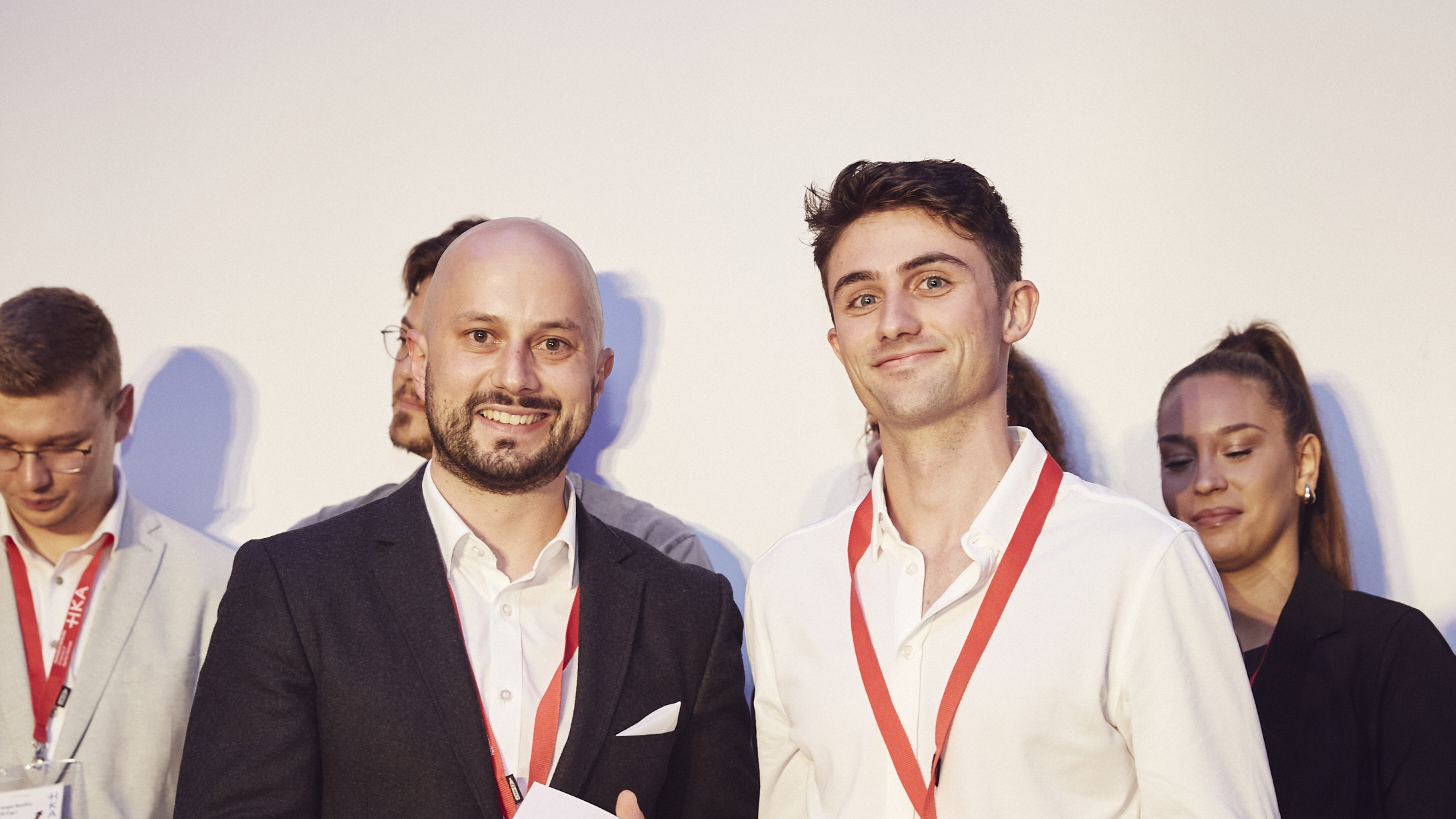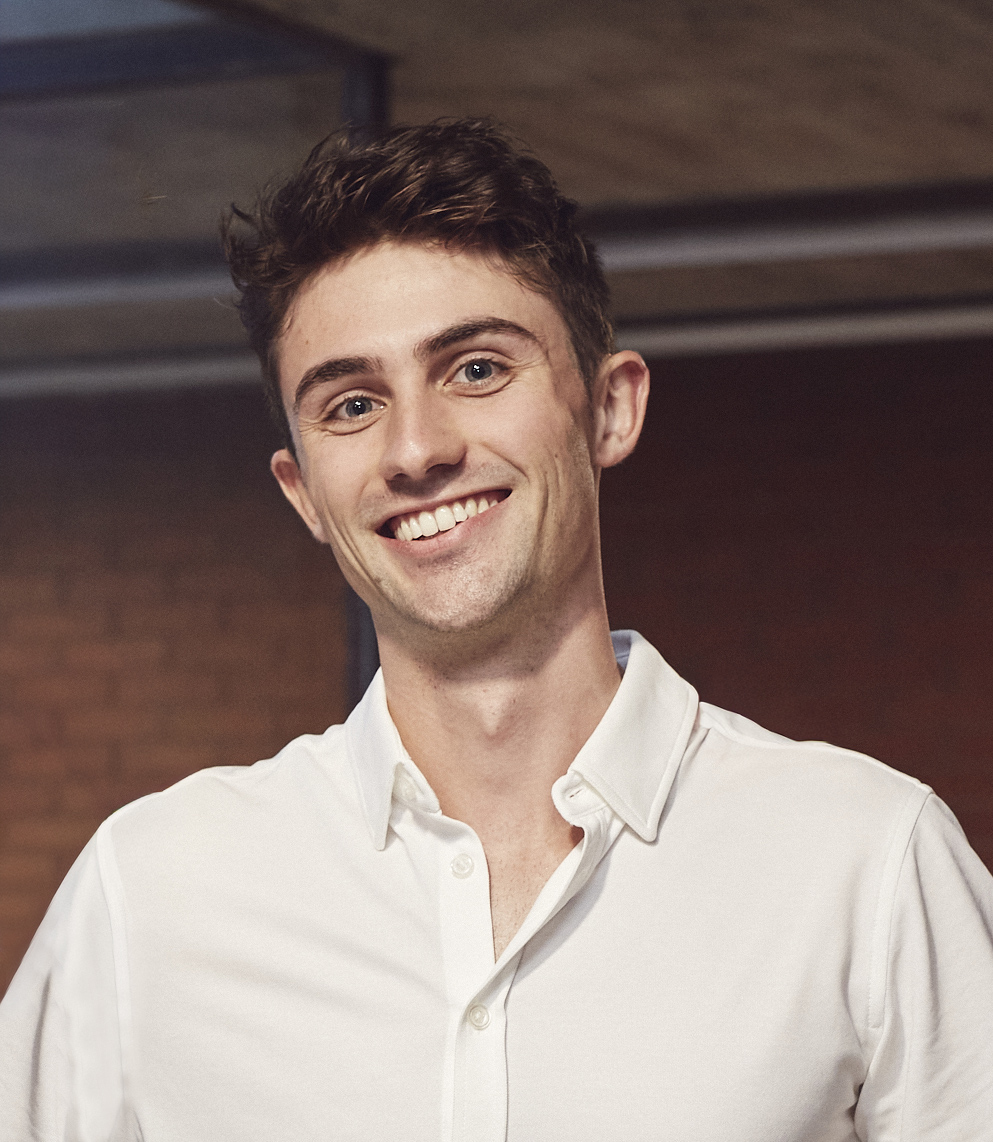HKA, CERN, Start-up – the stages of Nick Dienemann
Nick Dienemann completed a StudiumPLUS program with us, which means that he trained as an electronics technician for automation technology at Bosch while completing his bachelor's degree in electrical engineering and information technology. In his award-winning bachelor's thesis, he focused on autonomous vehicles. These vehicles must not only recognize other road users, but also use radar to correctly estimate how fast they are traveling. Nick Dienemann developed a physical model that enabled him to significantly improve AI-based speed estimation. We spoke with him.
HKA: How did you choose the topic of your thesis?
Nick Dienemann (ND): I became interested in artificial intelligence right at the start of my studies. I initially explored it on my own and found it really exciting. Over the years, I learned about many facets of AI and realized that it alone is somehow not tangible enough. That's why I find the combination of physics and AI very exciting. Autonomous driving is a direct product and a cool use case.
What did you do after graduating from HKA?
ND: I was incredibly lucky to be able to go to Geneva through the partnership between HKA and CERN. It was amazing. In fact, I would say it was the best five months of my life. It was great, especially since I was able to combine software and physics again.
What exactly did you do there?
ND: CERN is home to the LHC, the Large Hadron Collider, a particle accelerator. The aim is to collide particles with each other. To do this, scientists have devised a whole host of amazing detectors that can measure these collisions. But first, the devices have to be calibrated so that we know how many collisions have actually taken place. My group researched precisely this type of detector, which measures the number of collisions. We had the first prototype, so to speak, and now it was time to test it.
How does such a test work?
ND: First, a test facility is rented at CERN, which is well shielded with huge concrete blocks because radiation is produced. Then we run the experiments and take all kinds of measurements. The aim is to record the data that is generated and then process and evaluate it afterwards. Recording and evaluating the data were basically my tasks.
What are you doing at the moment?
ND: I'm studying for a master's degree in Robotics, Cognition, Intelligence at the Technical University of Munich (TUM). I have just completed my second semester and am currently working full-time during the semester break and will probably take a part-time job at a start-up here in Munich afterwards.
What industry is this start-up in?
ND: It's about predicting the energy output of photovoltaic parks, i.e., really large plants, based on image data from cameras pointed at the sky. I had never thought about it before, but when a cloud simply moves in front of the sun, the output of a solar park suddenly drops dramatically. On the one hand, this is a major challenge for the power grid, and on the other hand, electricity is traded. This means that if I have this information in advance and know that the amount of electricity will change in 15 minutes, I can optimize my trades and really earn money. And these predictions are exactly what the start-up is all about.
Looking back, how would you rate your studies at the HKA?
ND: Extremely good. I am still incredibly happy to have studied at the HKA. Even now, compared to TUM: it is simply invaluable to have such small class sizes at the HKA. And we had many top professors – I really learned a lot from the lectures.
Thank you very much for talking to us!

